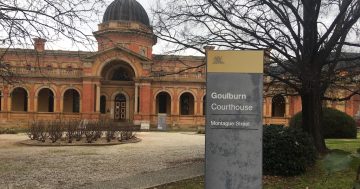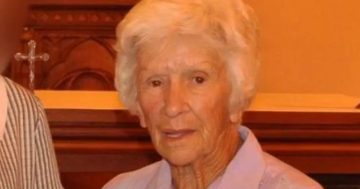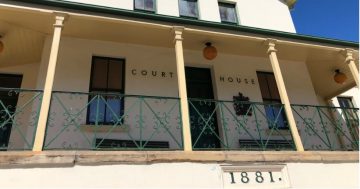
Omar Hamdan committed two shooting incidents on the streets of Young. Photo: File.
A man’s attempt to launch an appeal over his sentence for two shootings on public streets in the regional NSW town of Young has been knocked back, which means he must serve years in jail.
On 21 February 2019, the victim had been sitting in his car, which was parked outside a friend’s home, when he saw a white van drive up the street.
He saw the van’s driver, a man he knew called Omar Hamdan, cock a handgun and fire at him six times. One of the shots grazed his elbow.
He drove to Young Police Station straight away, where he was joined by a witness who told officers he had seen Hamdan “[shooting] the car up”.
Police looked at the victim’s car and saw two bullet holes in the front windscreen and one on a door.
While investigating, officers learned of another shooting earlier that day when Hamdan had shot into the same victim’s house on another street in Young.
Hamdan refused to be interviewed by police, but in 2020 he told them where they could find the handgun. The fully loaded pistol was found near his property, hidden inside an old washing machine that was lying on the ground behind a shed.
Hamdan, who had been living at his family’s farm outside Young, pleaded guilty to charges of firing a firearm at a dwelling with reckless disregard for the safety of a person, firing a firearm in or near a public place, as well as assault.
In May 2020, the Wagga Wagga District Court sentenced the then-22-year-old to a total of six years and eight months in jail, with a non-parole period of four and a half years.
At the sentencing, his lawyers argued he had intended to frighten the victim, not harm him.
The former bank employee later sought an extension of time in the NSW Supreme Court to lodge an appeal over his sentence, which was required because he had missed the period in which he could file necessary documentation.
He argued one ground of appeal, claiming he had experienced a “miscarriage of justice” due to the “incompetence, carelessness or oversight” by his lawyers in failing to raise that he had given assistance to law enforcement authorities, which could entitle him to a discount for his sentence.
But in Wednesday’s (12 April) decision by the Supreme Court’s Justice Helen Wilson, she said having considered the District Court proceedings, she could not conclude there was “any incompetence or oversight by counsel with respect to the issue of assistance to authorities”.
She said the fact that Hamdan had told police about the location of the handgun could be seen as assistance to the authorities, but all he had done was surrender the gun he used to commit his offences.
This was not assistance that could lead to the detection of any other crime, she said, and could only be regarded as being of “limited value”.
She did note how the sentencing judge had found that the surrender of the gun showed he was remorseful.
“For a reason that was largely obscure on the evidence, the applicant [Hamdan] took up a loaded pistol, and on two separate occasions discharged the weapon multiple times, on public streets, in residential areas, in circumstances that were highly dangerous,” Justice Wilson said.
“That [the victim] sustained only a minor injury after a barrage of bullets were discharged into his house, and at him and his car, is attributable only to good fortune.”
She said even if she accepted the explanations for why it had taken Hamdan so long to file leave to appeal were adequate, as she had concluded it could not succeed, she would not grant an extension of time.
Two other justices agreed with her orders.














While ever people , especially testosterone driven young males are put in charge of large and… View